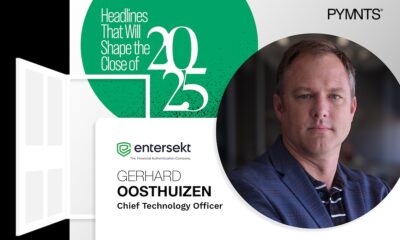The White House released a policy roadmap detailing President Donald Trump’s strategy to maintain U.S. leadership in the global artificial intelligence (AI) race. The plan emphasizes deregulation, infrastructure development, tighter export controls and freedom of speech for chatbots.
Among its stipulations, the “America’s AI Action Plan” mandates that AI systems are built from the ground up with “freedom of speech” and adhere to American values instead of shaped by “ideological bias.”
The National Institute of Standards and Technology (NIST) was also directed to revise its AI risk management framework to “eliminate references to misinformation, diversity, equity and inclusion, and climate change.”
Read more: President Trump’s AI Action Plan Calls for Chatbot Free Speech
Delta Looks to Set Prices Based on Traveler’s Personal Data
Delta Air Lines is rolling out “personalized pricing” to 20% of its airfares by the end of the year, in a major overhaul of its pricing structure. That’s up from 3% today.
Personalized pricing is pricing tailored to the individual based on the personal data collected.
For example, two people shopping for airfares at the same time might see different prices if one is a business traveler and the other is a budget-conscious consumer, based on information like income estimates, browsing behavior, purchase history or type of device used.
That’s different from dynamic pricing, which is determined by market factors such as real-time supply and demand and pricing by competitors. While the price changes, everyone sees the same price at a given time.
The FTC calls personalized pricing “surveillance pricing” and noted that at least 250 companies have deployed it.
See here: Delta Air Lines Tests AI-Powered Personalized Pricing
Google Search Holds Its Own Amid Competition
In reporting second-quarter earnings, Google’s parent Alphabet said AI Overviews now has more than 2 billion monthly users across 200 countries and territories. It also drives 10% more search queries globally.
In the quarter, Google Services revenue — which includes search, subscriptions, platforms, devices and YouTube ads — rose by 12% to $82.5 billion from the prior year.
Alphabet also said it would raise its capital expenditures this year to $85 billion. That’s $10 billion up from revised forecasts that Alphabet gave earlier this year and a 62% jump from what it actually spent in 2024.
More here: Pichai: AI Overviews Top 2 Billion Users and Boost Search by 10%
Opentable’s Rolls out AI Assistant, ‘Concierge’
OpenTable is debuting an AI assistant to help diners research restaurants faster, called “Concierge.”
Diners can ask Concierge questions such as whether a restaurant has vegan options or a kid-friendly atmosphere, by clicking the “ask a question” bar beneath the restaurant profile. Concierge also scours reviews in real time.
CTO Sagar Mehta told PYMNTS that Concierge can answer 80% of common questions asked by diners. The AI assistant also alleviates the workload of restaurants since they don’t have to answer phone calls from diners that ask the same questions repeatedly, like hours of operation.
Concierge is free for the public. It is embedded in both the OpenTable app and desktop website.
Coming next is the ability to book reservations for diners.
See here: OpenTable Debuts AI-Powered Concierge for Diners
OpenAI Plans GPT-5 Launch in August
OpenAI is reportedly preparing to launch GPT-5 model next month, according to Reuters.
OpenAI CEO Sam Altman said in a post on X that GPT-5 would be an “experimental” model that incorporates new research techniques that will be embedded in future models.
“We think you will love GPT-5,” Altman wrote, without revealing a launch date.
Altman said GPT-5 will not include the advanced math capability that led its latest reasoning LLM to win a gold medal at the prestigious International Math Olympiad.
Google Gemini said it also got a gold medal at the same math competition.
Related: OpenAI Set to Launch GPT-5 in August While Simplifying Offerings



 Fintech6 months ago
Fintech6 months ago
 Cyber Security7 months ago
Cyber Security7 months ago
 Fintech5 months ago
Fintech5 months ago
 Artificial Intelligence7 months ago
Artificial Intelligence7 months ago
 Fintech4 months ago
Fintech4 months ago
 Artificial Intelligence7 months ago
Artificial Intelligence7 months ago
 Fintech7 months ago
Fintech7 months ago

